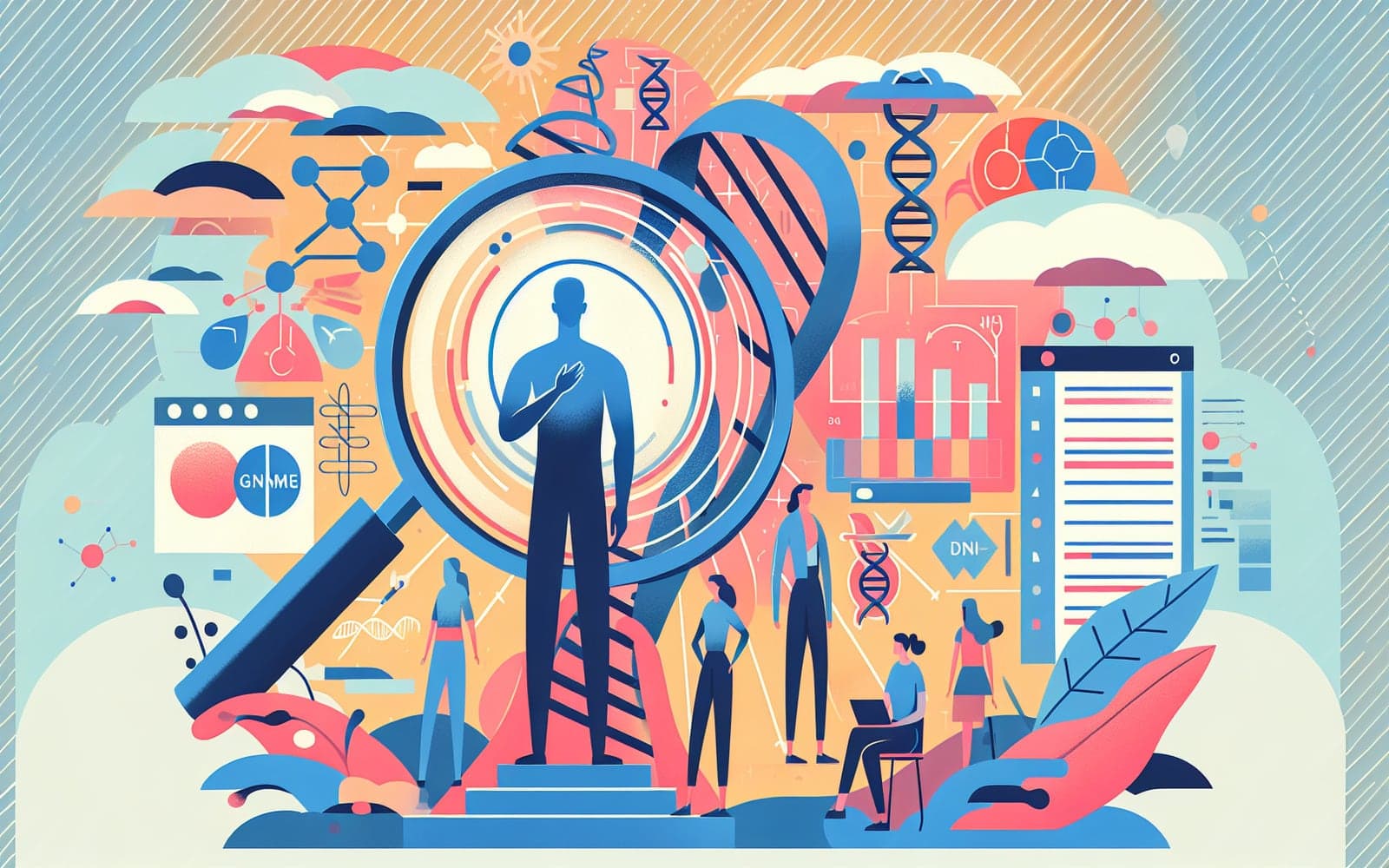Preventing Cancer with Genetic Insights: What You Need to Know
Preventing Cancer with Genetic Insights: What You Need to Know
What's This About?
Genetic information can guide preventive strategies to reduce the risk of hereditary cancers.
Contents
- The Role of Genetic Screening
- Preventive Measures You Can Take
- The Importance of Family History
The Role of Genetic Screening
Genetic screening helps identify individuals at high risk for certain cancers. Knowing one's genetic makeup can lead to early and proactive preventive measures. This approach is especially useful for those with a family history of cancers like breast and ovarian.
Preventive Measures You Can Take
For high-risk individuals, options like regular screenings, lifestyle changes, and preventive surgeries can significantly lower cancer risk. For example, some may choose risk-reducing surgeries such as mastectomy or oophorectomy. Others might consider medications that reduce cancer risk.

The Importance of Family History
A detailed family history can provide crucial insights into your cancer risk. It helps in deciding whether genetic testing is appropriate. Knowing your family history allows for personalized preventive strategies tailored to your genetic risk.
FAQs
How does genetic screening help?
It identifies those at high risk for certain cancers.
What preventive options exist for high-risk individuals?
Regular screenings, lifestyle changes, and surgeries.
Why is family history important?
It helps assess genetic cancer risk.
The Bottom Line
Understanding your genetic risk empowers you to take preventive action against cancer.
Additional References
- US Preventive Services Task Force, Owens DK, Davidson KW, et al. JAMA 2019; 322:652.
- Nelson HD, Pappas M, Cantor A, et al. JAMA 2019; 322:666.
This article has been reviewed for accuracy by one of the licensed medical doctors working for Doctronic.











